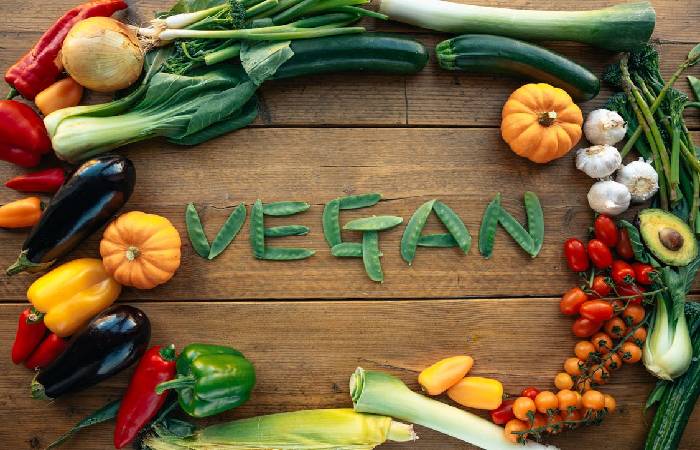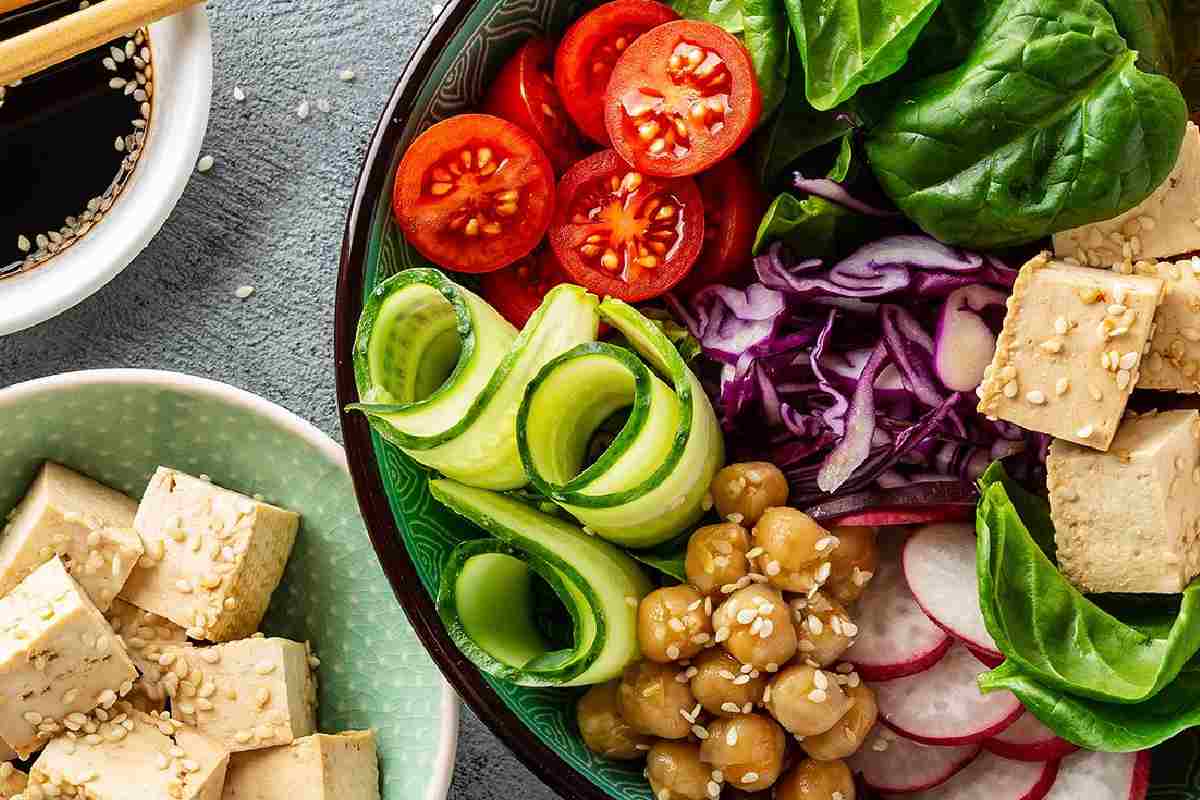Thinking of going Vegan or Vego? Read this first
Are you thinking of going vegan? Traveling can be an absolute disaster if done wrong (as we well know).
We took advice from, a certified sports dietitian who works with Australia’s top athletes at 98 Gym, to correct our mistakes and avoid the lost gains from our tough 98-line training.
So while one of the more conventional dietary approaches makes headlines again, it’s interesting to know that this particular eating pattern dates back to the days of the good Pythagoras, you know, the triangle guy, and well beyond.
I’m talking about Vegetarianism (well yeah, that’s what the title said).
It was a time when modern medicine was on the rise, and people not only wanted to survive, they wanted to prosper.
However, it was not originally about health. There is a long history of Vegetarianism adopted for moral and ethical reasons, which is a theme that remains strong today.

Is it Healthy?
The quick answer is; perhaps (how dull). Vegan diets can be healthy; however, they require special attention while making plans weekly meals to update vitamins they’re now not getting from animal ingredients.
In unique, ought to carefully monitor the intake of Protein, Iron, Calcium, Zinc, B12, and Omega-3 Fatty Acids.Some will feel good with all dietary approaches, while others will not benefit or feel good with a particular course. Here are the basics to consider before getting started.
Vegetarian and Degan diets have several subtypes: semi-vegetarian, Lacto-vegetarian (no meat or eggs), and Lacto-o-vegetarian (eating eggs).
Which adequately planned can provide all of the nutrients found in an omnivorous diet.
The initial thing to know is that just because Vegetarianism is considered healthy doesn’t mean it will automatically be full of good health.
There are well-planned vegetarian and less optimal diets (the note-oreo and barbecue forms are vegan, but that doesn’t throw them straight into the everyday wagon).
Iron and Vegetarian Considerations
It is common to see poorly planned plant-based diets that lead to deficiencies such as low iron content because not all iron sources are the same.
Iron from animals is called “heme” iron and is ready to carry oxygen throughout the body. Plant-based sources of iron are called “non-heme” and must be changed before the body can use the iron in red blood cells.
For this reason, vegetarians and vegans should consume around 1.8 times the recommended daily allowance (RDI) for iron when eating a plant-based diet.
It helps to know which foods are good sources of iron and aid absorption and inhibit iron absorption.
It may be helpful to combine iron-rich foods with a source of vitamin C to improve absorption around 50 mg, such as tomatoes or kiwis, to increase the absorption of available iron from food.
Eggs, legumes, spinach, and walnuts are also essential sources of iron.
Protein and Vegetarian Considerations
Vegan diet can provide high-quality protein for fit and healthy people, but it is essential to get protein from various sources, as plant-based protein sources are not all complete.
Particularly extensive amino acids in a plant-based weight loss program are methionine and lysine. So in case you ensure you are up to the mark on plant assets that offer a good quantity of protein, and if you eat a ramification of those meals, you may make certain that your protein intake is adequate.
Micronutrient Considerations and Vegetarianism
The list underneath describes the main micronutrients that vegetarians and vegans need to don’t forget while making plans their every day food plan. By that specialize in those nutrients to start with, over the years, you may get into the habit of consuming these meals often, and you’ll need to be much less cautious.
Now is an high-quality time to remember the fact that you have to have blood assessments every years to make certain your iron and vitamin B12 stages are accurate in case you are physically lively frequently.
Iron
As mentioned above, vegetarians need 1.8 times the usual RDI iron dose (32 mg per day for vegans/vegetarians) and regular monitoring of iron levels, especially during loadings.
Heavy workouts. 50 mg of vitamin C with food (kiwi / 1 medium orange, ½ red pepper, 50 g of tomato) will help absorption. Tea/Coffee with meals avoids as they contain tannins that prevent iron absorption.
Considerations about Zinc and Vegetarianism
8 mg (women) 14 mg (men) per day, and some research suggests that vegans need it.
1 mg = One tablespoon of nuts, seeds, or nut/seed butter, ¼ to ½ cup of cooked beans, a tablespoon of wheat germ,1 cup of cooked cereal, two slices of bread, 2 cups of cooked leafy greens
Considerations about B12 and Vegetarianism
2.4 mcg per day is required. It is not in plant foods; I would look for supplements for a vegan diet.
Consideration about Omega 3S and Vegetarianism
A 100-300 mg DHA supplement recommends including 2-5 g of flax seeds, walnuts, chia seeds, and fortified eggs.
Calcium
Recommended 1000 mg per day. Vegetarians can still get calcium from dairy products. However, milk is eliminated from the diet in the vegan population, leading to insufficient calcium intake.
1. Green leafy vegetables: broccoli, collard greens (cabbage family), bok choy, bok choy, and spinach.
2. One (1) cup of cooked spinach contains 100 mg, although only five percent can be absorbed.
Due to the high absorption of Oxalate, a compound in spinach that reduces calcium Absorption.
3. Broccoli covers 45 milligrams of calcium, but the absorption of broccoli is much higher about 50 to 60 percent.
4. Soybeans and Tofu: Tofu (depending on the type) or soy drinks fortified with tempeh and calcium.
5. Nuts and seeds: Almonds, Brazil Nuts, and Sesame seed paste (Tahini). 15 Almonds contain approximately 40 mg of calcium.
6. Foods fortified with calcium, including breakfast cereals, milk substitutes, Fruit Juices, and Bread. For example, one cup of calcium-fortified breakfast cereal (40 grams) contains up to 200 mg.
Final Thoughts
So, although it is not suitable for everyone, if you keep an eye on the nutrients described in the article, it is quite possible to survive on a plant-based diet and improve. Your health by targeting nutrient-rich plants Food.
The Holy Grail of weight-loss diets, but Vegetarianism is a diet approach beloved by many, and when done correctly, can help you live your years with that glowing, glowing skin you see. Instant fame vegetarians (or is that just good lighting?).

